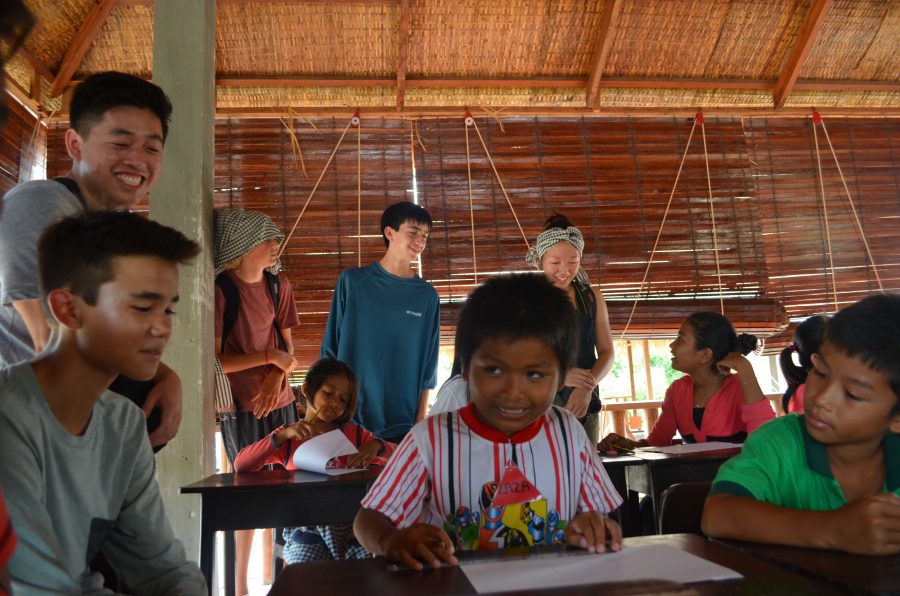In 1975, Cambodia faced a genocide that killed more than 20 percent of its population. Headed by Pol Pot, the Khmer regime murdered, brutalized and dehumanized its own people. Schools were turned into prisons and torture centers that held the elite members of Cambodian society.
Just 30 years later, I was given the opportunity to visit a country that has endured such hardships to see the culture and to meet a few of the people who survived the genocide or had family members who were killed during the genocide.
The first day, we visited Cambodia Living Arts to watch a performance by students. After spending time with the students, a couple of the other students and I talked to the head of that group. We had our group leader, Chhon Chhea Yut, translate for us. Surprisingly, the one who broke down during the interview was not the head herself, but our group leader. She told us that all Cambodians felt the agony experienced during the genocide as one community. It was something absolutely unforgettable.
What I struggled with during this trip was seeing some of the Cambodians stuck in the past and letting it hold them back. The atrocities they experienced are truly unforgettable, but seeing some of the Cambodian people on the streets begging, unable to move on and hearing how terrible the genocide over and over was frustrating for me. As someone who gets joy from helping others, being helpless in this situation was unbearable.
However, there were two people that were able to channel their sorrows into something beautiful.
Muoy was one of the most blessed people I have ever met. As a child, Muoy lived fairly well and was sent to study abroad. During her studies abroad, the Cambodian genocide commenced and her family members were victims of it.
While abroad, she learned the importance of equal education because her school provided equal education for people of all socio-economic classes. She was devastated by the loss of her family but decided she wanted to build a school and do something she could fully invest herself in. She gave up everything to start her school.
People said she was crazy, but Muoy pushed through. Even through the times where it seemed like her idea would fail, she tried harder and was able to get the funding from generous donors.
Her school is currently flourishing and growing even bigger, with many volunteers from Europe and Australia. Her story was moving and involved many hardships, but ultimately she was able to move on from them and return to her home country to provide opportunities for the young Cambodian children.
Arn Chorn Pond was a child soldier in the Khmer Rouge during the Cambodia Genocide. His experience was first-hand.
Music for Arn was something that both destroyed and healed him. When he was in the Khmer Regime, he was told to play music for the prisoners to mask the sound of the killings so that they would not know the terrible things that the Khmer Regime was doing.
During the genocide, people were under the impression that the Khmer Regime was saving them from their current society, but in reality they were well on their way to becoming a dictatorial society.
When the reign of the Khmer Rouge was over, Arn went to America where he was bullied for being different. And yet despite these hardships, Arn is one of the friendliest and kindhearted people I’ve ever met.
When Arn finally got the courage to return to the land he felt so much shame in, he opened up his Magic School Bus, which was a bus he rode in with a couple other musicians from Cambodia Living Arts to perform live concerts for people who had never heard live music before.
For Arn and many others, music is a way for them to show and relieve their distress, shame and sorrow. He can’t put into words how terrible he felt during the genocide and playing music was his way of finally being able to express it. Arn is moved by people tearing up just hearing him play his flute.
This trip has made me want to share the strength music can give to people. Seeing artists from Cambodia Living Arts like dancers, smote singers and instrumental players, has furthered my belief that music is the one thing that can help everyone.
There’s no language barrier, no judgment, but rather the sharing of feelings and reminiscent memories of the carnage of mental and physical horror, as well as the relief and triumph after.































